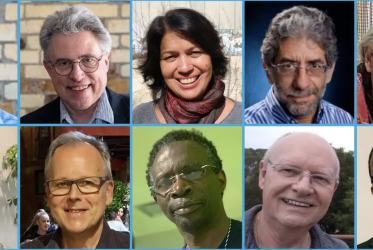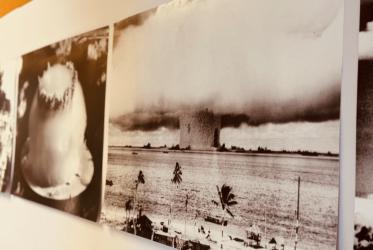Displaying 1 - 20 of 2595
New WCC appointments reflect strong global fellowship
10 April 2024
WCC, WHO commemorate 50 years of collaboration
04 April 2024
Voice of churches vital during UN women’s rights talks
28 March 2024
WCC at the Commission on the Status of Women
09 - 22 March 2024
"Nuclear Resilience for Peace and Prosperity” event will open photo exhibition
08 March 2024
Ecumenical Centre, 150 Route de Ferney, Geneva
What can churches do to prevent modern slavery?
22 February 2024
International conference “Towards Nicaea 2025: Exploring the Council’s Ecumenical Significance Today”
04 - 08 November 2024
The Ecumenical Institute at Bossey












